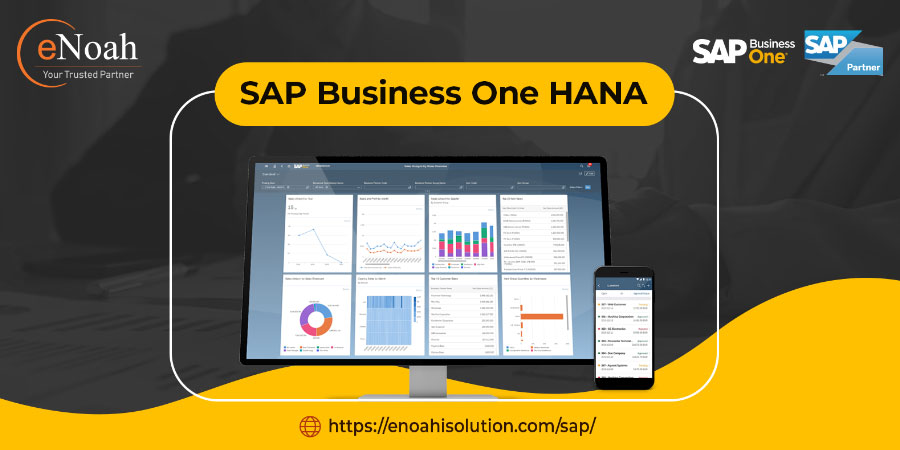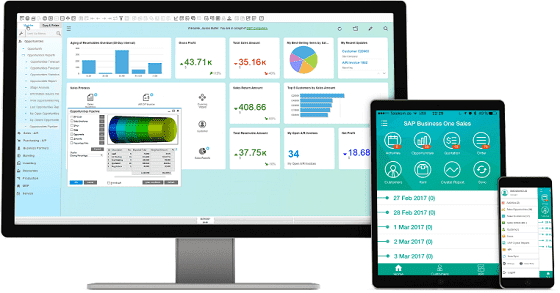 SAP Business One HANA vs. SQL: A Paradigm Shift in Enterprise Performance
SAP Business One HANA vs. SQL: A Paradigm Shift in Enterprise Performance

In the world of enterprise resource planning (ERP), the choice of database management system can significantly impact the efficiency, speed, and capabilities of an organization’s operations. SAP Business One, a comprehensive ERP solution, offers two primary database options: SAP HANA and SQL (Structured Query Language). While both have their merits, SAP Business One HANA emerges as a game-changer, transforming how businesses manage their data, make decisions, and achieve operational excellence.
The Evolution of Databases in ERP
Traditionally, SQL databases have been the cornerstone of ERP systems, offering a reliable foundation for storing and retrieving data. However, as business landscapes have grown more complex and data volumes have surged, the limitations of SQL databases have become apparent.
SAP HANA, which stands for “High-Performance Analytic Appliance,” marks a paradigm shift in ERP databases. It utilizes in-memory computing, storing data in RAM rather than on traditional disks. This architectural innovation leads to lightning-fast data processing and transformative benefits for businesses.
The Advantages of SAP Business One HANA
SAP Business One HANA brings forth a host of advantages that set it apart from SQL databases:
- Speed and Performance:
- SAP HANA’s in-memory technology accelerates data processing, retrieval, and analysis. Complex queries that would take minutes on a traditional SQL database are completed in seconds with HANA. This speed translates to quicker decision-making and enhanced productivity.
- Real-time Insights:
- HANA’s speed enables real-time analytics and reporting. Businesses can access up-to-the-minute insights, enabling them to respond swiftly to market changes and make informed decisions based on the freshest data.
- Advanced Analytics:
- HANA’s in-memory capabilities enable advanced analytics, predictive modeling, and complex data processing. This empowers businesses to unearth hidden patterns and trends that might go unnoticed with traditional databases.
- Reduced Data Footprint:
- HANA’s compression algorithms result in a significantly reduced data footprint compared to SQL databases. This leads to cost savings on storage and more efficient data management.
- Simplified IT Landscape:
- With HANA, businesses can consolidate data marts and separate analytics solutions. This simplifies the IT landscape and reduces the need for multiple systems, leading to cost and time savings.
- Enhanced User Experience:
- HANA’s speed translates to a seamless user experience, with applications responding instantly. This boosts user adoption and satisfaction.
- Improved Decision-making:
- With real-time insights and advanced analytics, HANA empowers businesses to make data-driven decisions with confidence.
SAP Business One HANA vs. SQL: A Clear Winner
While SQL databases have served businesses well, SAP Business One HANA introduces a new era of performance and possibilities. The advantages of HANA extend beyond speed, encompassing enhanced analytics, reduced complexity, and empowered decision-making. In today’s fast-paced business landscape, where agility and efficiency are paramount, SAP Business One HANA emerges as the clear winner.
Embracing the Future of ERP Databases
In conclusion, SAP Business One HANA marks a significant leap forward in ERP database technology. Its in-memory computing capabilities usher in a new era of speed, performance, and insights that elevate businesses to new heights. By embracing SAP Business One HANA, organizations position themselves for operational excellence, innovation, and a competitive edge in a rapidly evolving business environment. The choice is clear: SAP Business One HANA is the path to a future of unprecedented efficiency and success.


